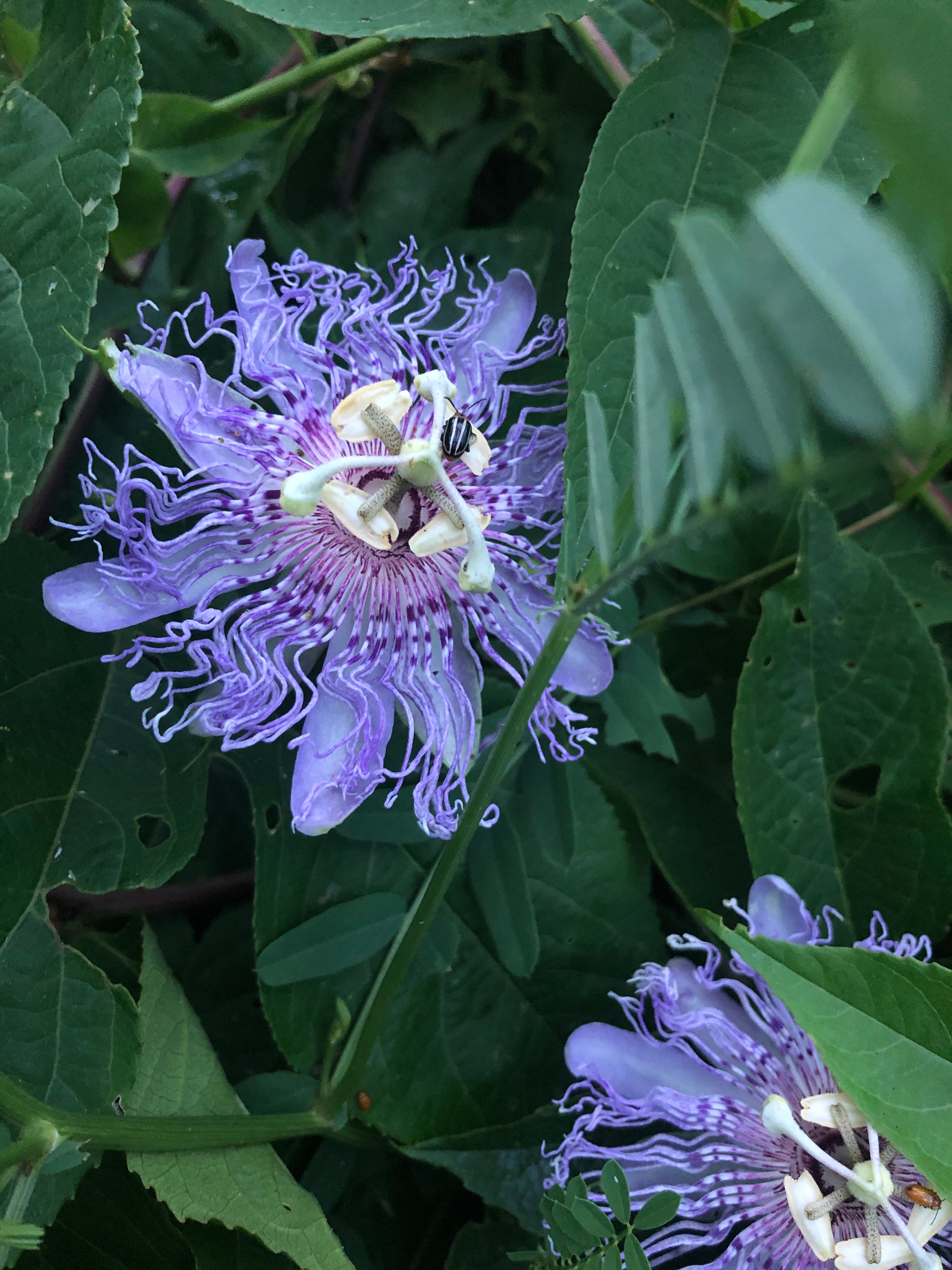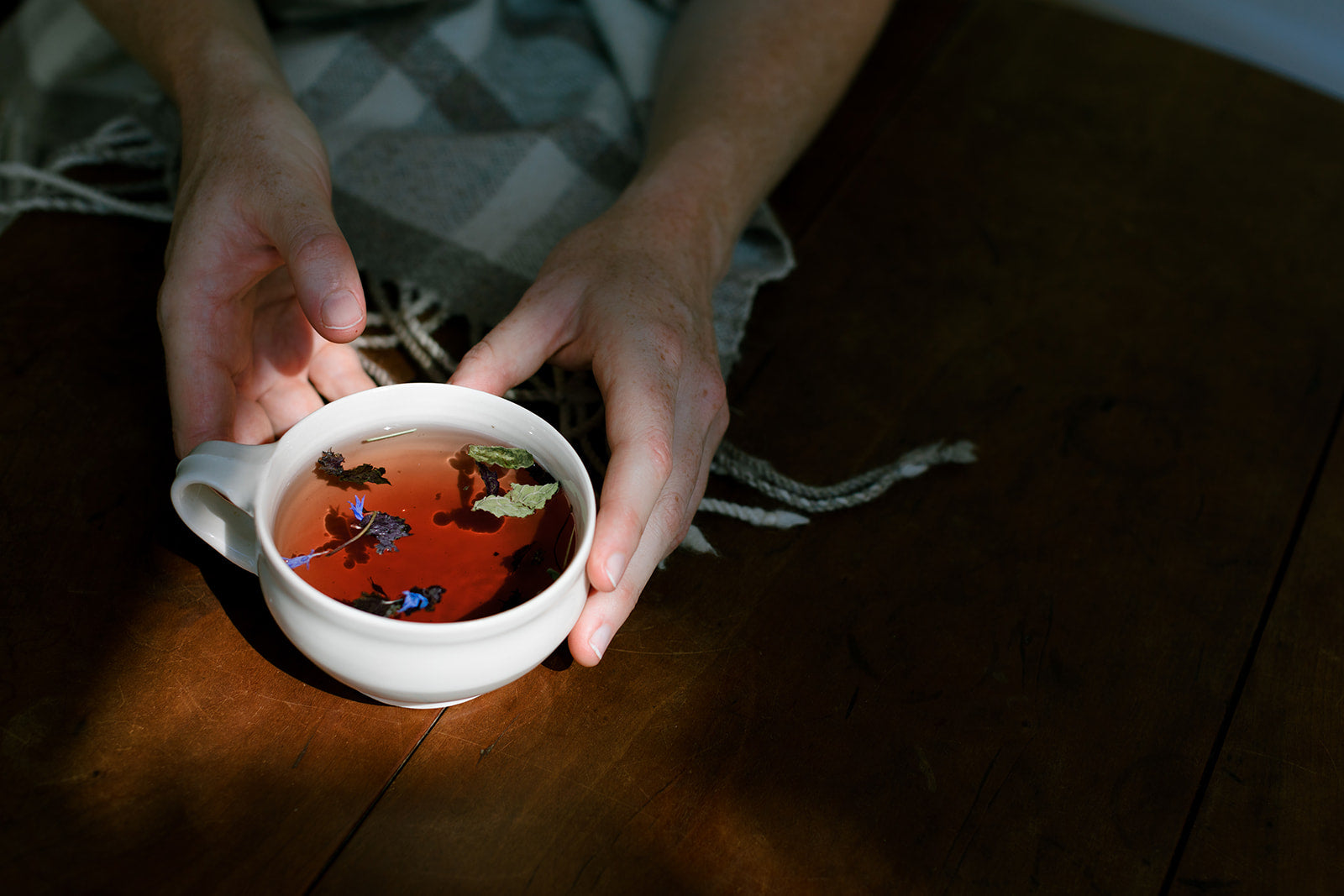Passionflower (Passiflora incarnata)
Oh Maypop… this dreamy, alien-looking, medicine powerhouse of a plant is truly something special to behold.
Maypop (Passiflora incarnata), also known as passionflower, is a vining plant native to the southeastern US, one you may be familiar with thanks to its outlandishly beautiful, showy flowers. Traditionally used by Native Americans - who, interestingly, largely used the root - maypop was also used by enslaved African Americans and early white colonizers, later popularized by the Eclectic physicians in the 19th and 20th centuries.

Today, we largely use the flowering purple passionflower vine for its soothing, calming and relaxing effect on the nervous system and body, and is one of the primary herbs for sleep support. We love using passionflower for sleep in particular. Passionflower tincture is especially lovely for circular thinking and it’s the first one we think of when someone complains that they can't sleep through the night and has an agitated mind that won’t turn off. Maypop offers the feeling of easing into soothing, cool water - there is something very fluid about it that can be freeing for those that struggle with the feeling of being stuck.
One can also use this plant by making passionflower tea, however we find that passionflower tincture made from the fresh plant material is more effective.
Unsurprisingly, we humans are not the only ones who love to get up close and personal with the mesmerizing flowers of Maypop. Ants too have a particular relationship with this plant - Passionflower entices the ants with nectar produced by glands at the base of their leaves and flower. In return, the ants protect the plant from insects that would otherwise eat the plant’s leaves.
It is important to note that there are over 700 species of Passiflora, including the tropical species that have sweeter fruits. Not all types of passionflower are medicinal and some may be toxic. Passiflora incarnata is the one most used for medicinal benefits, the one we are talking about here, and the one we make medicine with!

At Heilbron Herbs we use fresh plant Passiflora extract in our Sleep Tincture - paired with California poppy, skullcap, milky oats and chamomile. We recommend taking this before bed and then keeping it by your bedside with a little glass of water if you’re someone who wakes in the 2-4 am window - or even prepare a couple dropperfuls in your water before bed so you don’t have to think about it!
Disclaimer: The above statements have not been evaluated by the FDA. Any products referenced are not intended to treat, diagnose, cure, or prevent any disease.



Leave a comment